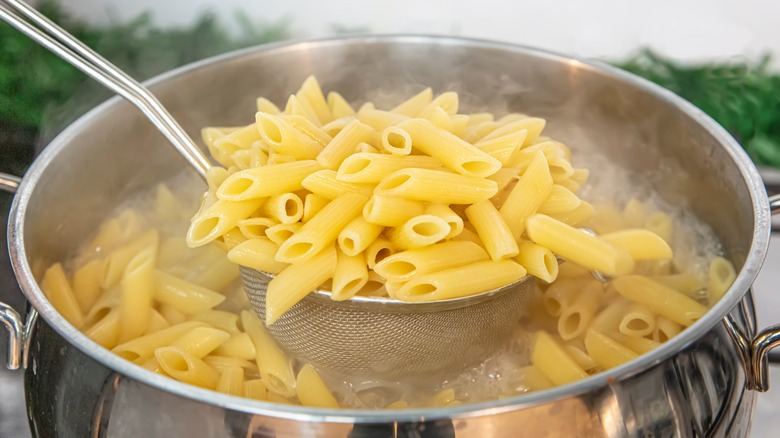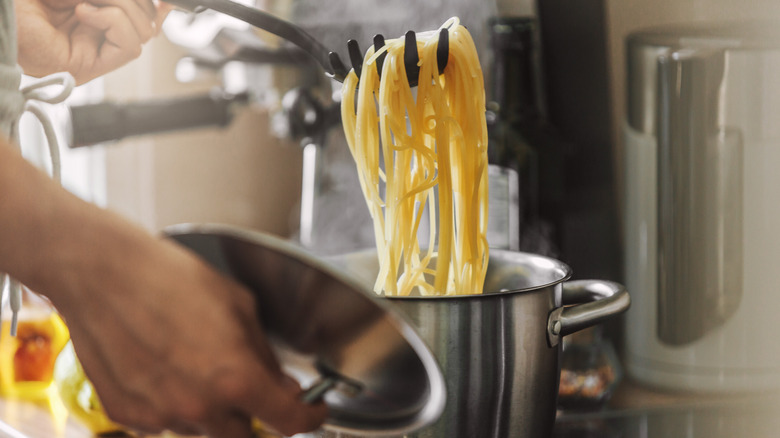The Foolproof Tip You Need If You Forget To Save Your Pasta Water
Most cooks, whether professional chefs or home-kitchen warriors, have done it: We've splashed that steamy, cloudy pasta water down the drain after working its magic on the stovetop. The pasta is perfectly al dente, as all pasta should be, so you're done with the hot water. But should you be? Absolutely not, according to a slew of culinary pros.
Martha Stewart explains that cloudy pasta water contains starch, which becomes a binder and thickener when added to your evolving pasta dish. The salted starchy water gives flavor and depth to the sauce while also helping it blend well with the pasta, per Smithsonian Magazine. With roughly 50% of American families consuming pasta up to twice a week and some up to four times weekly, perfect pasta on plates means a lot of nutrition in stomachs. Smithsonian also points out that pasta, typically made from durum wheat, is a big part of the touted Mediterranean diet. It has a low glycemic index when cooked al dente, otherwise known as "to the tooth." So go ahead, dive into those heaping platters of pasta — just retain the water it's cooked in.
But even if you've known that gastronomy secret for years, there's a pretty good chance you'll occasionally and absentmindedly toss some cooked pasta into a colander without saving the water. What to do? There's actually a very simple solution — and it only takes two items routinely available in home and pro kitchens.
A different kind of starch
Since the starchy thickening component of pasta water is where the value lies, there's an easy substitute if you inadvertently fail to save the water. It also applies if you're using gluten-free or whole wheat pastas, which don't contain much starch, according to Milk Street. Just reach into your cabinet for some cornstarch. Mix a quarter teaspoon of cornstarch with the same amount of kosher salt and 1 cup of water. Bring it to a boil to make the starch gel to the desired consistency.
Martha Stewart recommends a pasta-making process that goes something like this: Create your base with olive oil or butter and your choice of sautéed onions, garlic, meats, and vegetables. Then, add al dente pasta and a cup of pasta water (or the cornstarch substitute). You'll see a creamy, succulent, emulsified sauce develop before your very eyes, infused with all the nuanced flavors in your skillet. Sauces that are thick by nature, such as marinara or Bolognese, rarely need pasta water. But you can still add a small amount, in place of oil, if those sauces are too stodgy.
A few more water-related pasta tips can help you get it just right. Barilla says to avoid adding oil to the water when cooking pasta as it leads to slippery noodles. Smithsonian adds that its best not to rinse cooked pasta, because the surface starch adds flavor while helping the sauce and pasta components marry well for the grand finale.

